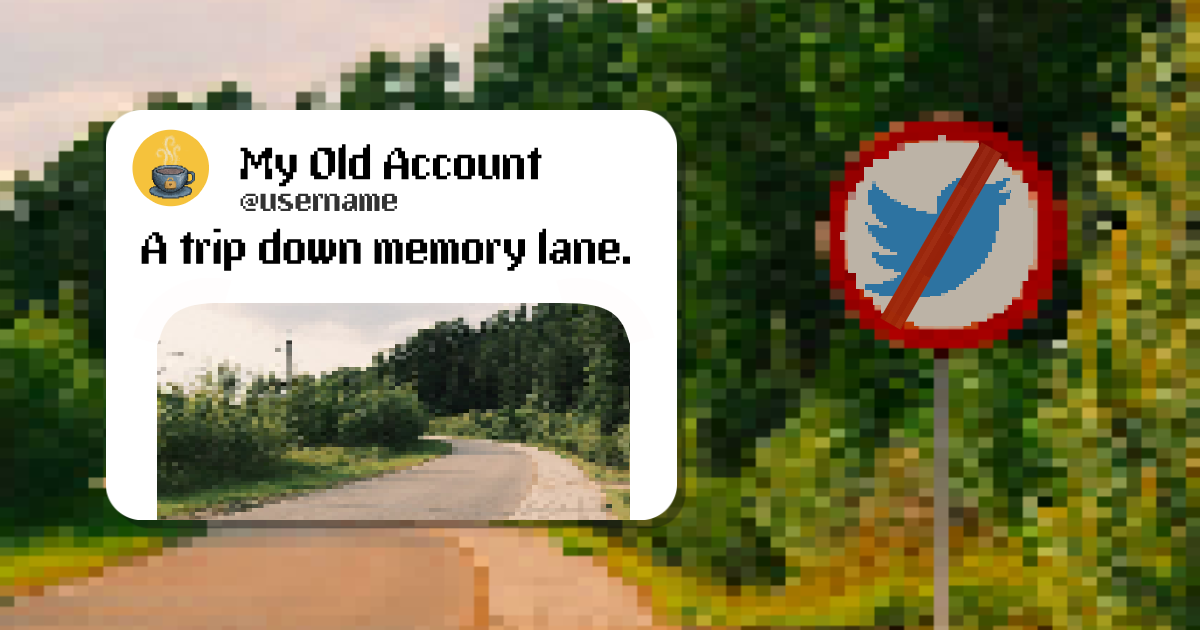I spend a lot of time talking with cybersecurity folks, reading the nerdiest newsletters, and generally trying to keep up with what’s bubbling up in the infosec world — all so I can point you toward maximum safety with minimal panic.
The problem? The “threat landscape,” as we like to say in the biz, is dynamic.
Translation: random, chaotic, and frequently on fire. One week it’s data breaches, the next it’s a zero-day exploit, then suddenly your passive data (the stuff collected about you) and active data (the stuff you share yourself) are both in the crosshairs.
So… Twitter.
(Yes, I’m still calling it Twitter. Humor me. I miss what it used to be.)
Like many longtime internet dwellers, I’ve got a ridiculous amount of personal data scattered across old platforms. I left Twitter when it started platforming division and hate, figuring I’d delete my account “someday.”
HAHAHAHAHAHA. Anyway.
Turns out that using Twitter’s own delete tool doesn’t actually remove your likes and comments. Those little breadcrumbs can reveal more about you than your actual tweets ever did.
Yikes.
Two tools for walking down memory lane safely
If you’d like to tidy up your digital past, there are two solid options: Block Party and Cyd.
Block Party is a favorite. It handles post deletion, DMs, likes, blocks, and settings across multiple social platforms. It’s paid, but worth it for the peace of mind.
Cyd, on the other hand, is a free open-source tool designed specifically for Twitter cleanup. It not only deletes your tweets, DMs, likes, and bookmarks, it saves them as an HTML archive first. To use it, request your Twitter data archive (it may take a few days), download Cyd, and follow the instructions. Then settle in. Seriously, this takes a while.
I’ve had Cyd running for over 24 hours and I’m only about two-thirds done. Between Twitter’s internal rate-limiting and my 6,000 tweets with 27,000 likes and replies… oof. That’s a lot of digital detritus. More than I ever realized I’d left behind.
The archaeology of self
Re-reading my tweets from 2008 and 2009 feels like digging up a time capsule from another life. The internet was different, the world was different — I was different. There’s something both cringey and comforting about seeing the evidence of growth in public. It’s nice to know I can change my mind when presented with new information.
But it’s also unsettling to think that governments, algorithms, or future employers might one day judge us based on those old, context-free echoes. Back before we knew what we know now — about companies, politics, the climate, or ourselves.
The takeaway
It’s fascinating (and a little horrifying) to see just how much of our lives have been logged online. Fifteen years of posts, jokes, and half-baked thoughts, quietly accumulating in the background.
The TL;DR? Your past self deserves some privacy too. Whether you use Block Party, Cyd, or another tool, take an afternoon to prune your digital history. You might be surprised (and maybe a little relieved) by what you find.
Join us for tea!
CybersecuriTea is a free, plain-English guide to digital safety, designed for families, friends, and the folks you love. Subscribe today and get weekly tips to help keep your digital life secure.
Or, if you’d like to support our work and keep the kettle warm for everyone:
Issue # 24
This content may contain affiliate links. If you choose to sign up or make a purchase through them, we may earn a small commission, at no additional cost to you. Thank you for supporting CybersecuriTea.




